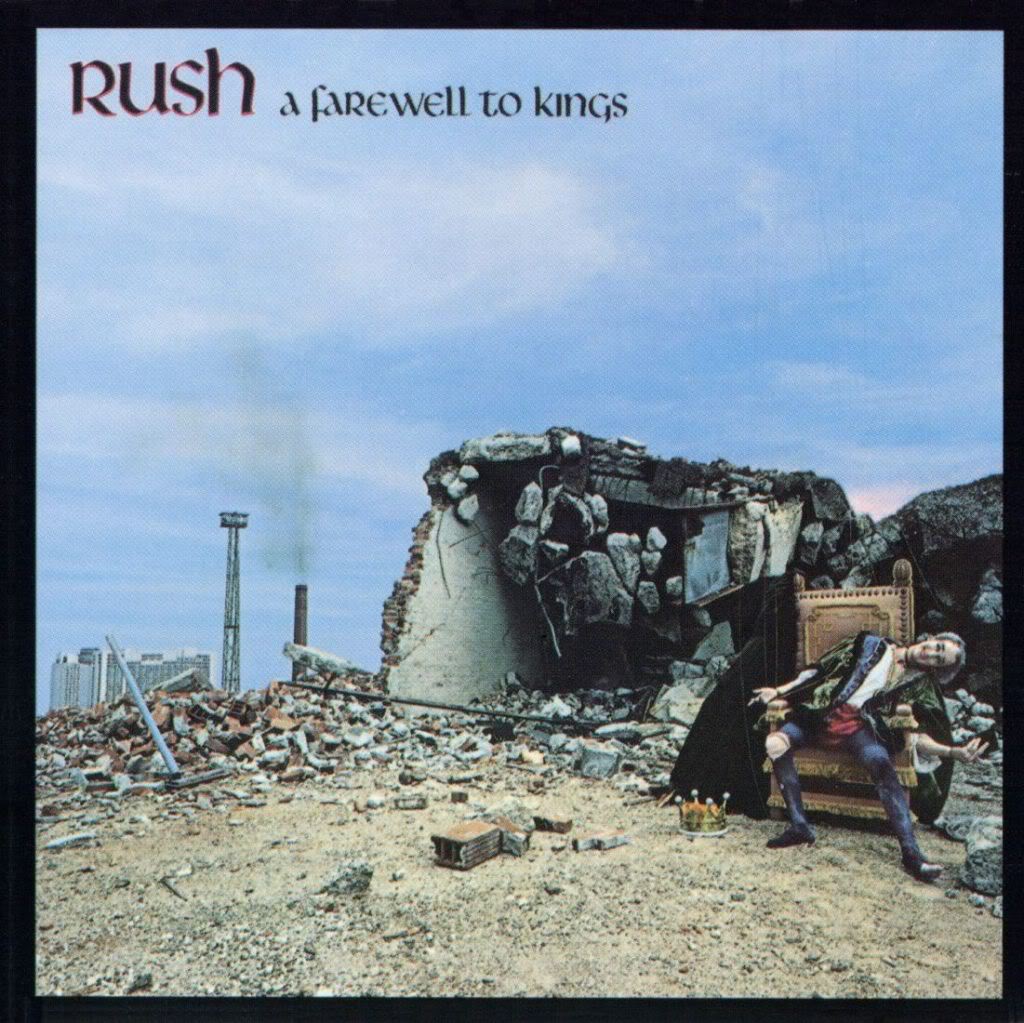
A Farewell To Kings (1977)

1.A Farewell to Kings
2.Xanadu
3.Closer to the Heart
4.Cinderella Man
5.Madrigal
6.Cygnus X-1
If compact discs had been around when this album first appeared in 1977, it would likely have been the first title any discerning fan rushed out to buy. Of course, that didn’t happen until the late 1980s, and for years this record was heard through the muffled haze of dusty vinyl. A shame, really, because A Farewell to Kings is filled with delicate sonic details—glistening chimes, carefully layered synthesizers, and spatial effects—that practically demand a clean digital transfer. This was not a record made for scratches and static.
Coming off the towering appreciation of 2112, the band showed little interest in staying static. They moved forward—tentatively at times, but always deliberately. The familiar DNA was still there, but now it was being stretched. Geddy Lee, for instance, had discovered synthesizers. He doesn’t overuse them—not yet—but their inclusion adds another texture to the band’s growing sonic palette. Neil Peart was expanding too, experimenting with all manner of bells, blocks, crotales, and other percussive oddities. And even Alex Lifeson, long the keeper of the hard rock flame, adds more acoustic guitar than ever before.
And yet, despite these additions, the core identity remains intact. The title track A Farewell to Kings opens the album and serves as a manifesto of sorts: a seamless fusion of acoustic serenity and electric bombast. If you like the opener, the rest will come easily. Or, more likely, enthusiastically.
Gone are the side-long suites of the previous record, but both Xanadu and Cygnus X-1 clock in at over ten minutes and demonstrate that ambition hadn’t been abandoned—only refined. Xanadu, with its shimmering soundscapes and mythological overtones, feels like an audio journey through Tolkien’s middle-earth. It’s as rich as it is melodic. Cygnus X-1, by contrast, is a plunge into deep space. From the eerie spoken intro to the spiraling instrumental chaos, it’s as immersive as headphone listening gets. This is a track that should only be experienced on CD—and preferably in the dark.
With such lengthy centrepieces, there’s only room for three shorter songs. None of them ascend to the heights of Xanadu or Cygnus X-1, but all serve their purpose. Closer to the Heart became something of a signature tune, and though the studio version feels a little slight when compared to later live performances, it remains a solid effort. Cinderella Man is the album’s most conventional track—almost as if the band were still feeling obliged to submit a possible single. It’s competent, pleasant, and entirely unremarkable. Madrigal, the obligatory slow number, is tender and understated, but at barely two-and-a-half minutes, it ends before it has the chance to make a lasting impression. One suspects the limitations of the vinyl format had more to do with this than artistic choice.
Many fans later looked back at A Farewell to Kings as the beginning of “Phase Two” in the band’s career. The notion isn’t without merit. If 2112 was the record that saved the band, A Farewell to Kings is the one that saw them settle into their skin. No longer proving themselves, they began simply to create. The results, as it turns out, were often extraordinary.
Go back to the main page
Go To Next Review